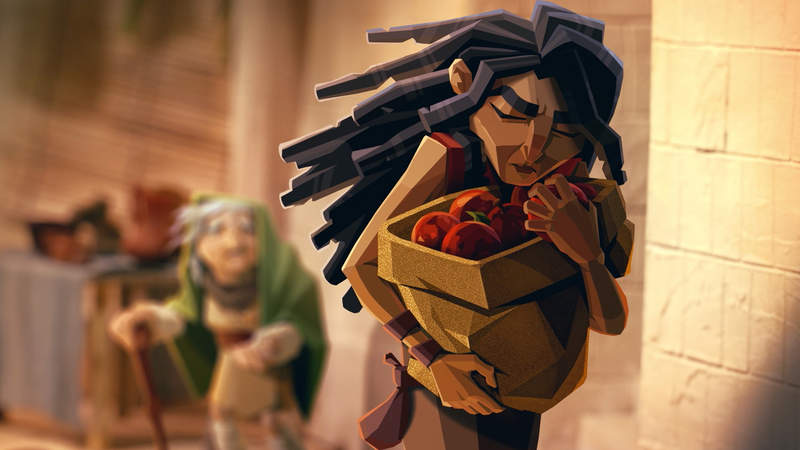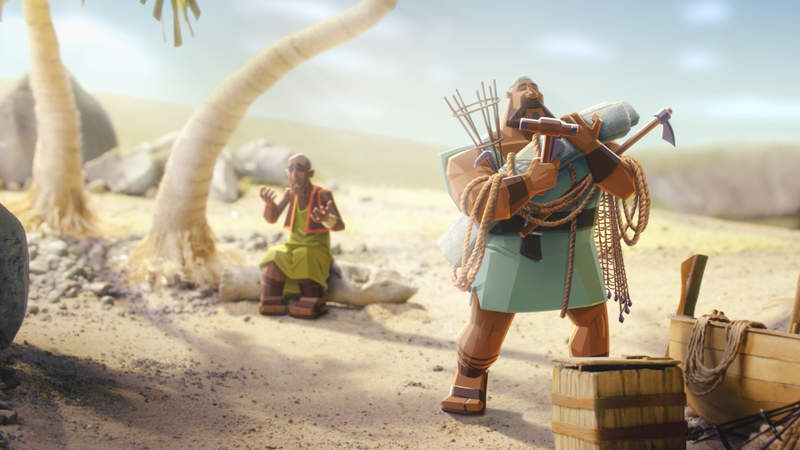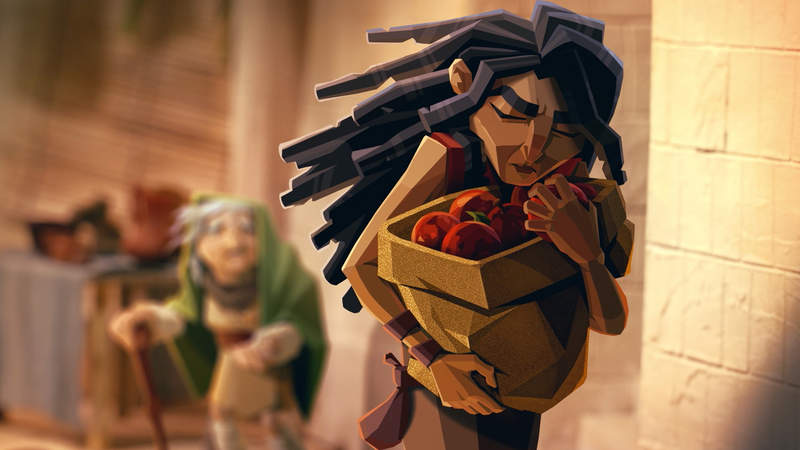Wealth and Worry
About

Jesus of Nazareth is a 1st century Jewish man whose teaching and way of life began to reunite God's domain with our domain. He calls this reunion the arrival of the Kingdom of the skies. And Jesus invites people to follow him so that they can enter into that heavenly realm here on Earth in their day-to-day lives.
As humans, we desire divine experiences like love, peace, safety and security, but we face obstacles on the path to these rewards. In fact, Jesus says the biggest obstacle to experiencing God’s heavenly life and presence is our stuff! Possessions and wealth may make us feel more stable and secure, but Jesus has a different perspective on material things.
In this guide, discover Jesus’ teaching about wealth and possessions, including the worry they often produce in our lives. You can also explore related videos, podcast episodes, and more.
Context
Key Themes
- The human tendency to trust in wealth and possessions
- How generosity leads to life and greed leads to death
- The inability to live for God and wealth at the same time
- Worrying about money and resources
- Average life versus live in God’s Kingdom
Structure
Storing Up Stuff
Jesus starts this section of teaching by saying:
19 “Do not store up for yourselves treasures on earth, where moth and rust destroy, and where thieves break in and steal.
We all know that stuff wears out, runs out, or gets lost. So we often work to gather even more and protect what we already own. In doing so, we place more and more of our attention on our stuff. And before we know it, we’re living for that stuff—it owns us. All of this hoarding of resources leads to more stress and fear. Jesus presents an alternative and says we can experience the good life when we direct our attention elsewhere. He says:
20 But store up for yourselves treasures in heaven, where neither moth nor rust destroys, and where thieves do not break in or steal;
But what is this “sky stuff?” Sky stuff is the rich experience of peace and fulfillment we feel when we follow Jesus’ teaching about loving God and each other. This may look like a kind word, an act of generosity, offering forgiveness, or showing compassion. Jesus encourages us to store up that kind of stuff because the loving relationships we cultivate now will last into the new creation.
We receive and store up sky stuff when we trust God and live according to his instruction. Jesus describes this as inheriting eternal life. We can experience the sky stuff right now, and it will be waiting for us in the renewed creation, making it more valuable and secure than anything we could store up on the land.
But why can’t we store up both land stuff and sky stuff at the same time? Jesus warns us to be careful because our stuff has a way of slowly shaping us in its image and consuming our hearts. Or as Jesus puts it:
21 for where your treasure is, there your heart will be also.
In other words, we ought to focus our hopes and desires on what matters most. When we do this, we will become more free, generous, and alive.

The Lamp of the Body
In his next teaching, Jesus uses a vivid image to describe this kind of focus.
22 “The eye is the lamp of the body; so then, if your eye is clear, your whole body will be full of light.
This phrase, “good eye,” is a figure of speech in the Hebrew Bible for being generous, while a “bad eye” is a metaphor for being stingy, hoarding your stuff. Jesus warns that a bad eye is the quickest way to ruin yourself.
23 But if your eye is bad, your whole body will be full of darkness. So if the light that is in you is darkness, how great is the darkness!
Does Jesus mean we should give all our stuff away? Well, Jesus does tell one wealthy man to do just that (see Matthew 19:16-30). But ultimately, this teaching is about our priorities and how we relate to others. When we love only ourselves, we see our stuff as something to hoard and protect. But when we love others, we can see our possessions and resources as blessings for everyone around us.

No One Is Able to Serve Two Masters
Jesus continues to emphasize how important generosity is with another parable.
24 “No one can serve two masters; for either he will hate the one and love the other, or he will be devoted to one and despise the other. You cannot serve God and wealth.

The stakes are high here, and Jesus is pretty blunt. Our love for money and stuff can prevent us from experiencing the union of Heaven and Earth. According to Jesus, wealth can demand our loyalty, like a tyrant. We might think we own our stuff, but before long, it can end up owning us. We can shift our focus away from our stuff and stop storing up more than what we need. This will bring freedom and allow us to use the stuff we do have to bless others and foster the lasting rewards of the Kingdom of the skies.
Consider the Birds and Flowers
At the end of the day, we all do need stuff to survive. We need food, clothing, and shelter. This section closes with another teaching about physical resources, bringing all of these ideas together.
25 “For this reason I say to you, do not be worried about your life, as to what you will eat or what you will drink; nor for your body, as to what you will put on. Is life not more than food, and the body more than clothing?
What does Jesus mean here? The word Jesus uses for “worry” here is the Greek word “merimnao,” which means to have concern for something. Sometimes concern is good, like showing concern for a friend. But often, our tendency to be concerned can get out of hand—choosing to focus on potential problems or dwelling on disasters that might happen.
When we obsess over things beyond our control, like rain for our crops or what’s going to happen tomorrow, we may experience a gnawing ache in our gut. And that ache won’t help us live longer or bring us peace or security. Rather it steals the joy out of the present moment. Jesus wants to free us from that ache of worry by redirecting our attention to God’s trustworthy character.

26 Look at the birds of the sky, that they do not sow, nor reap, nor gather crops into barns, and yet your heavenly Father feeds them. Are you not much more important than they? 27 And which of you by worrying can add a single day to his life’s span? 28 And why are you worried about clothing? Notice how the lilies of the field grow; they do not labor nor do they spin thread for cloth,
With these words, Jesus draws on biblical poems like Psalm 104, which describe how God holds the universe in a delicate balance and lavishly cares for his creation.
104 Bless the Lord, my soul! Lord my God, You are very great; You are clothed with splendor and majesty, 2 Covering Yourself with light as with a cloak, Stretching out heaven like a tent curtain. 3 He lays the beams of His upper chambers in the waters; He makes the clouds His chariot; He walks on the wings of the wind; 4 He makes the winds His messengers, Flaming fire His ministers. 5 He established the earth upon its foundations, So that it will not totter forever and ever. 6 You covered it with the deep sea as with a garment; The waters were standing above the mountains. 7 They fled from Your rebuke, At the sound of Your thunder they hurried away. 8 The mountains rose; the valleys sank down To the place which You established for them. 9 You set a boundary so that they will not pass over, So that they will not return to cover the earth. 10 He sends forth springs in the valleys; They flow between the mountains; 11 They give drink to every animal of the field; The wild donkeys quench their thirst. 12 The birds of the sky dwell beside them; They lift up their voices from among the branches. 13 He waters the mountains from His upper chambers; The earth is satisfied with the fruit of His works. 14 He causes the grass to grow for the cattle, And vegetation for the labor of mankind, So that they may produce food from the earth, 15 And wine, which makes a human heart cheerful, So that he makes his face gleam with oil, And food, which sustains a human heart. 16 The trees of the Lord drink their fill, The cedars of Lebanon which He planted, 17 Where the birds build their nests, And the stork, whose home is the juniper trees. 18 The high mountains are for the wild goats; The cliffs are a refuge for the rock hyrax. 19 He made the moon for the seasons; The sun knows the place of its setting. 20 You appoint darkness and it becomes night, In which all the animals of the forest prowl about. 21 The young lions roar for their prey And seek their food from God. 22 When the sun rises they withdraw, And they lie down in their dens. 23 A person goes out to his work And to his labor until evening. 24 Lord, how many are Your works! In wisdom You have made them all; The earth is full of Your possessions. 25 There is the sea, great and broad, In which are swarms without number, Animals both small and great. 26 The ships move along there, And Leviathan, which You have formed to have fun in it. 27 They all wait for You To give them their food in due season. 28 You give to them, they gather it up; You open Your hand, they are satisfied with good. 29 You hide Your face, they are terrified; You take away their breath, they perish And return to their dust. 30 You send forth Your Spirit, they are created; And You renew the face of the ground. 31 May the glory of the Lord endure forever; May the Lord rejoice in His works; 32 He looks at the earth, and it trembles; He touches the mountains, and they smoke. 33 I will sing to the Lord as long as I live; I will sing praise to my God while I have my being. 34 May my praise be pleasing to Him; As for me, I shall rejoice in the Lord. 35 May sinners be removed from the earth And may the wicked be no more. Bless the Lord, my soul. Praise the Lord !
Jesus goes on:
30 But if God so clothes the grass of the field, which is alive today and tomorrow is thrown into the furnace, will He not much more clothe you? You of little faith!
As humans, we are made in God’s image and filled with his breath—his Spirit. Since God designed our world with plenty of life-giving resources for everyone, we don’t need to worry about having enough. And we don’t need to hoard or violently defend our resources. We can live generously and give without fear, and even become God’s means of providing for others.
To clarify, in this teaching, Jesus isn’t talking about anxiety that you cannot control—that sense of dread or anxiety that results from trauma, a chemical imbalance, or other mental health issues. It takes discernment to know the difference, and God often provides healing through the wisdom and expertise of others. But if we’re wrestling with the choice to worry over scarce resources or potential problems, Jesus invites us to take a deep breath and trust that God’s provision is more than enough for everyone. And there’s a lot of evidence for this. Like Jesus says, watch the birds, gaze at the lilies, and see God’s generous care for his whole creation.
31 Do not worry then, saying, ‘What are we to eat?’ or ‘What are we to drink?’ or ‘What are we to wear for clothing?’ 32 For the Gentiles eagerly seek all these things; for your heavenly Father knows that you need all these things. 33 But seek first His kingdom and His righteousness, and all these things will be provided to you.
34 “So do not worry about tomorrow; for tomorrow will worry about itself. Each day has enough trouble of its own.